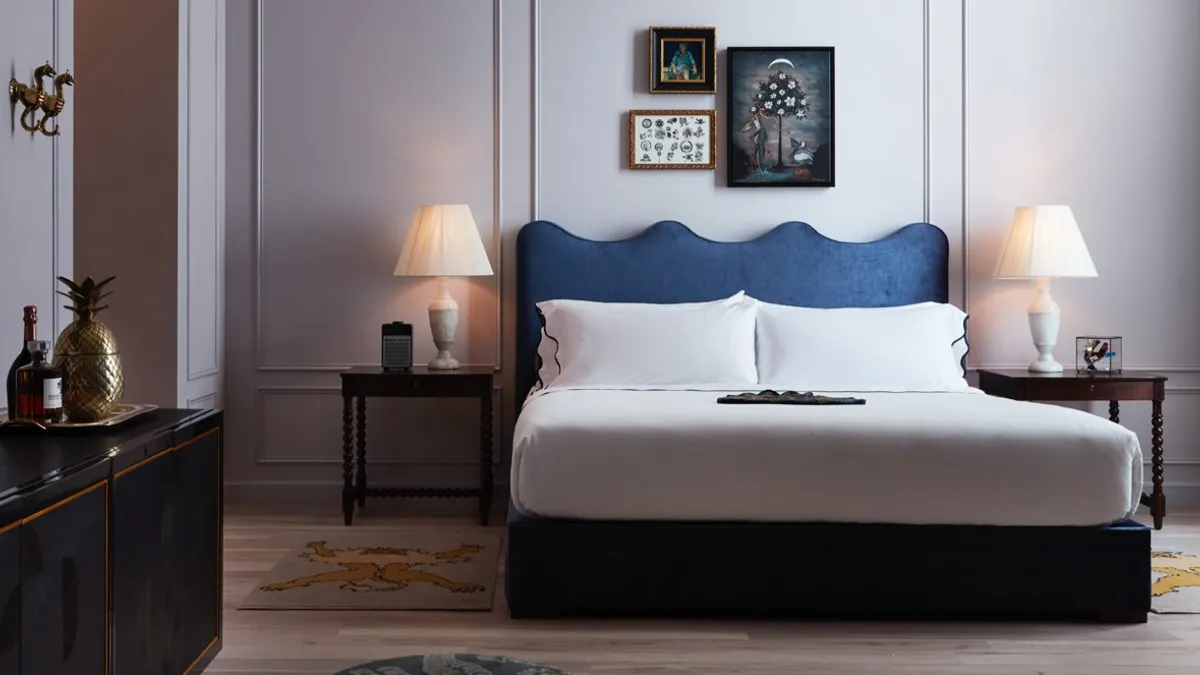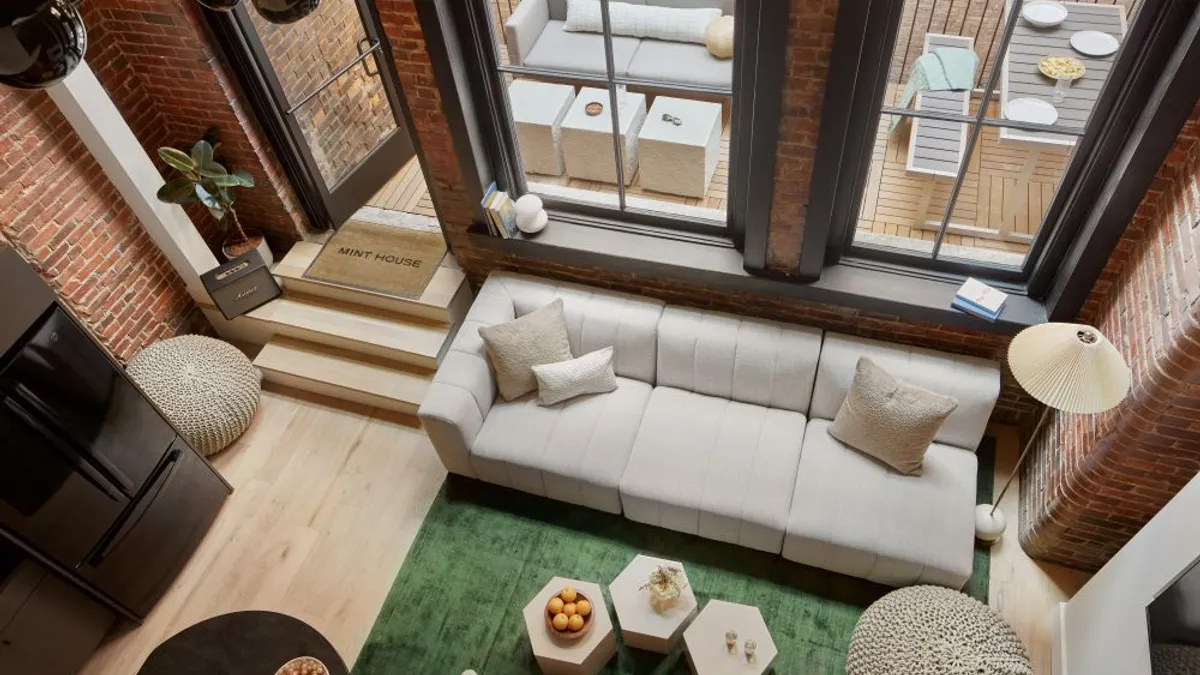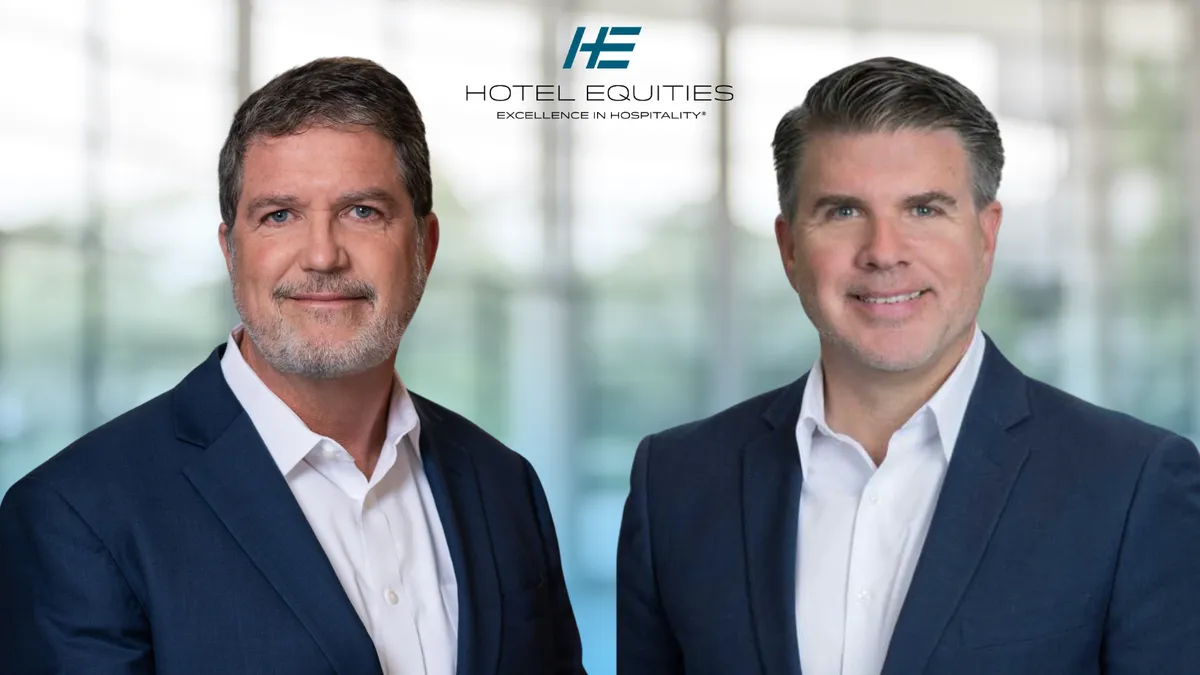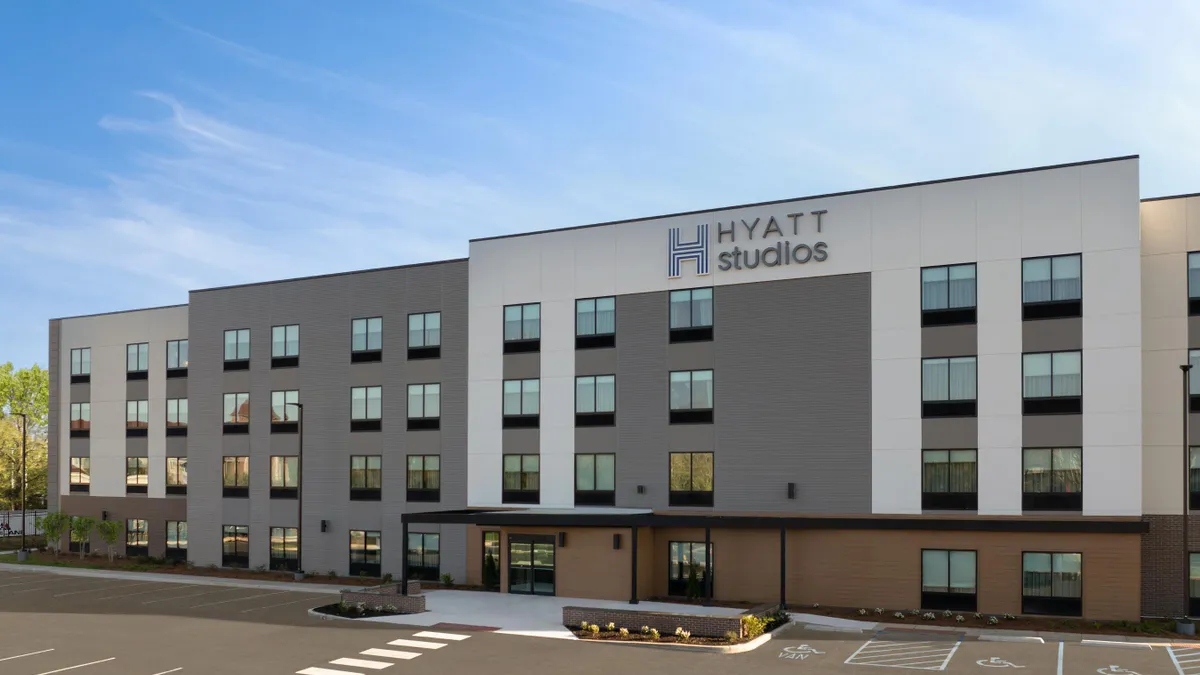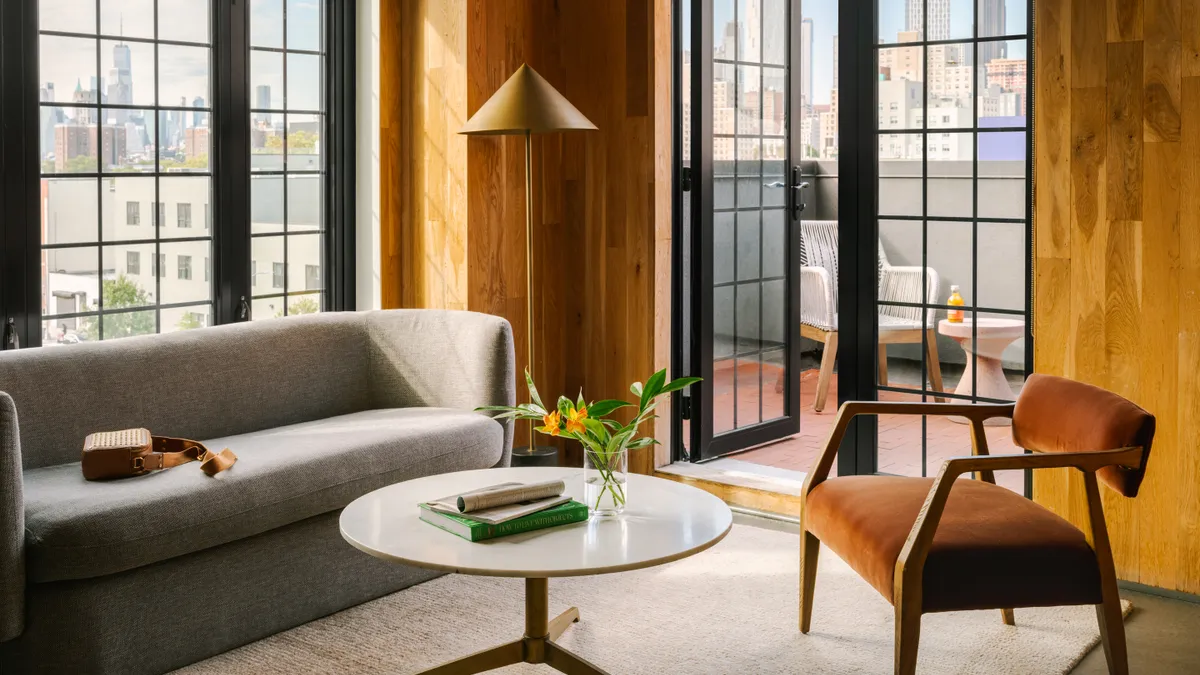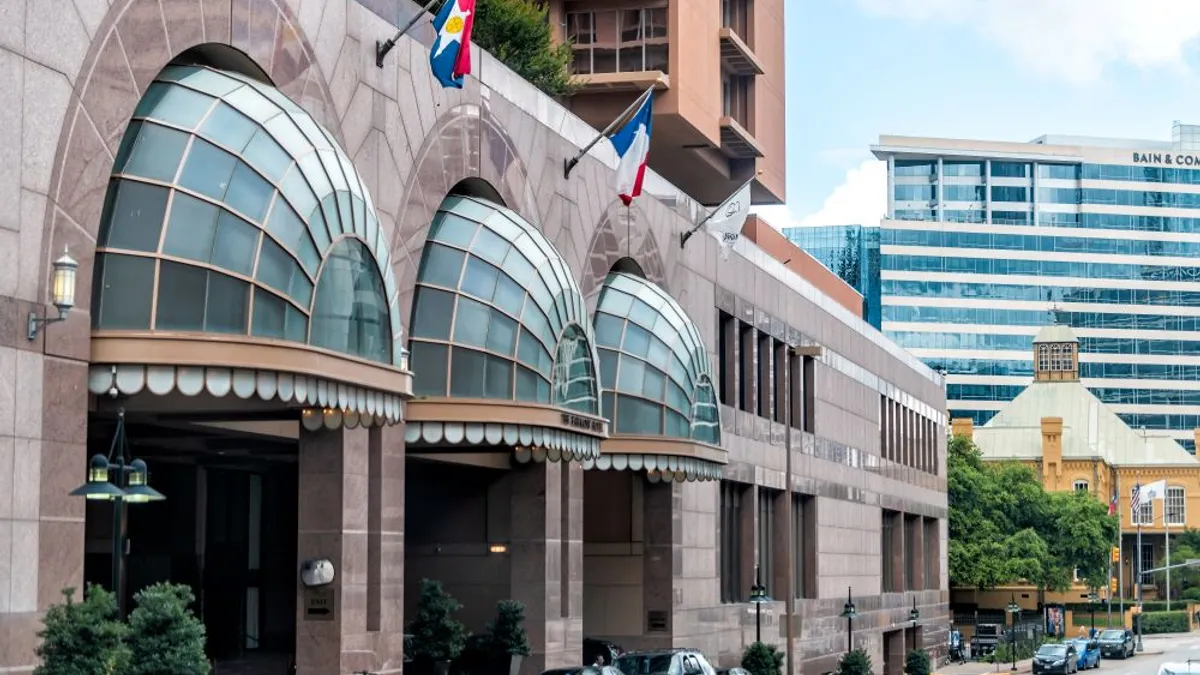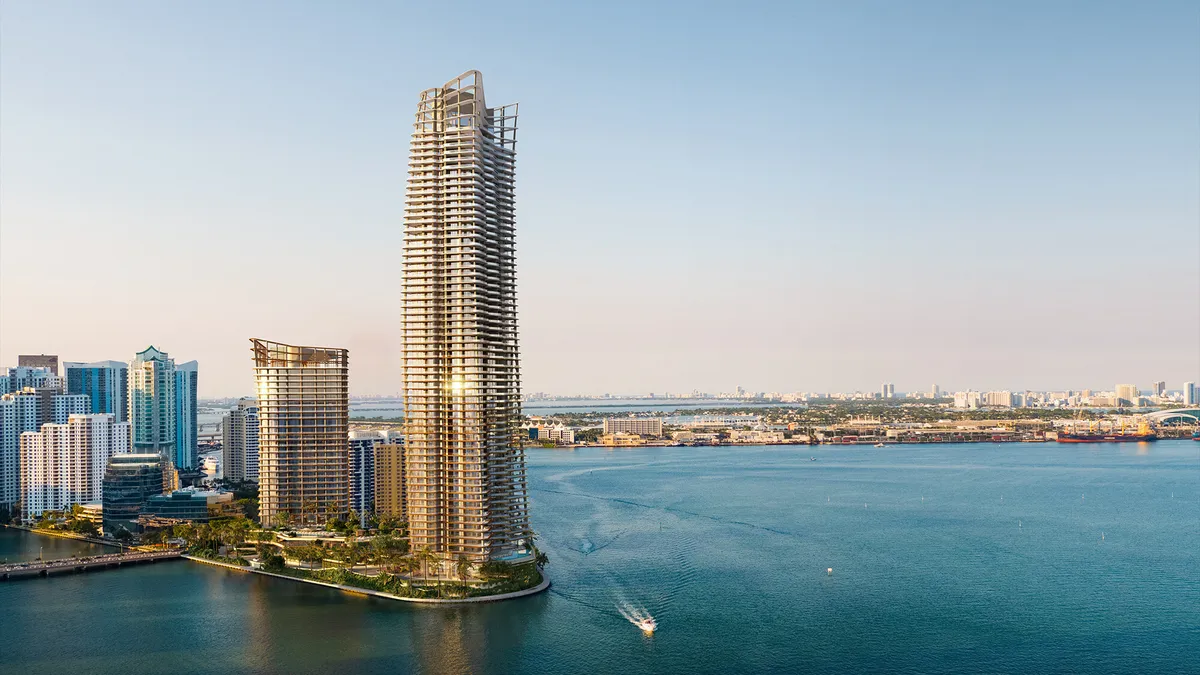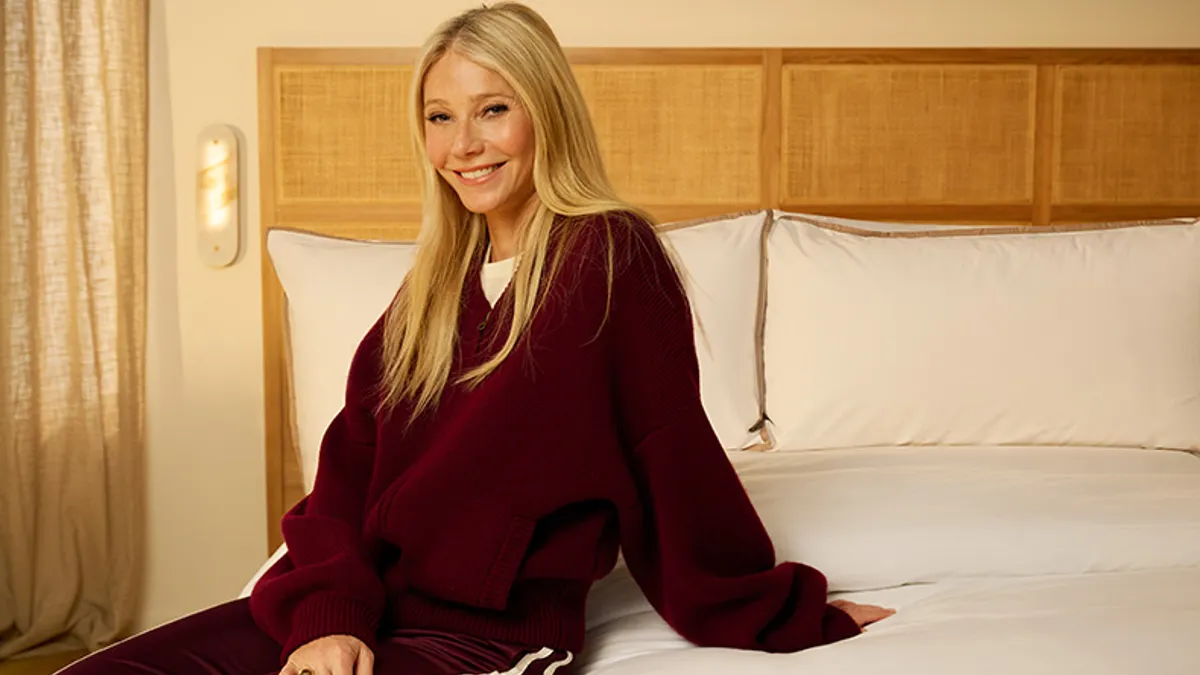The hotel industry was abuzz earlier this month after Bloomberg reported that Hyatt is in advanced talks to acquire Standard International.
Despite the circulating reports, both Hyatt and Standard International have yet to confirm the potential deal. Industry experts, though, shared with Hotel Dive that they’re not surprised talks may be underway, as the deal would help grow Hyatt’s portfolio and loyalty membership.
Yariv Ben-Ari, chair of the real estate hospitality practice at New York law firm Herrick, told Hotel Dive it's likely negotiations are underway given Hyatt's recent track record of brand acquisitions. Last year, for example, Hyatt acquired the luxury hotel platform Mr & Mrs Smith.
There are several advantages the Standard International deal poses, Ben-Ari said, including the opportunity for Hyatt to expand in the highly demanded boutique hotel space. But the deal wouldn’t come without its challenges.
Heightened demand for boutique hotels
The U.S. boutique hotel space has seen strong performance and demand growth over the past year, according to The Highland Group’s Boutique Hotel Report 2024, obtained by Hotel Dive.
The report includes data on three boutique hotel categories: the independent boutique, what The Highland Group classifies as “the original boutique hotel”; lifestyle hotels, affiliated with large franchises; and soft brand collections.
Standard International falls under the independent boutique category in the report, while several Hyatt brands, including Centric, Andaz and Caption, fall under the lifestyle category. Destination by Hyatt and Unbound by Hyatt are soft brands.
Each category has seen supply growth over the past five years, with the supply of independent boutiques increasing at a compound annual average rate of 3% from 2018 through 2023, according to the report. Soft brand collections, meanwhile, grew 4% on average, and lifestyle hotels grew 11%.
Across all three categories, the boutique hotel concept generated higher RevPAR than most comparable class U.S. hotels in 2023, The Highland Group found. And while results vary from hotel to hotel, boutique properties that focused on “an experiential stay, exceptional design and unique amenities” tended to “attract a rate premium,” according to the report.
Demand increased year over year across all segments, including upper midscale, upscale, upper upscale and luxury, in the independent boutique hotel category, according to the report. RevPar was also up across each segment.
According to Ben-Ari, demand for boutique hotels is growing as more travelers seek luxury and experiential accommodations, a trend experts told Hotel Dive in January will continue through 2024.
Advantages of brand acquisition
With strong RevPAR performance and improving demand fundamentals, the boutique hotel space poses significant growth opportunities for hotel companies — and that’s one reason Hyatt may be eyeing acquisition in the space, Ben-Ari noted.
As for the Standard International deal specifically, it poses several key advantages for Hyatt. For one, Ben-Ari said, “it’s easy to absorb something that has proven to work and is trendy, accepted and marketable.”
“So, rather than go and start to develop something from the ground up, and invest a lot of time and money to grow a new brand, by absorbing something that exists and works and is scalable — which is the most important thing — that makes a lot more sense then trying to start from scratch,” Ben-Ari added.
Max Starkov, hospitality consultant and adjunct professor at NYU’s Tisch Center of Hospitality, told Hotel Dive that what’s driving Hyatt’s appetite for hotel acquisitions more generally is the opportunity to gain portfolio scale — and gain it quickly.
Growing its global footprint through organic room growth would take “much, much longer” than through acquisition, Starkov explained.
Ben-Ari echoed similar sentiments, saying another draw of the Standard International deal is the company’s portfolio, which is larger and farther-reaching than some of Hyatt’s other recent brand acquisitions.
By acquiring Standard International, Hyatt would presumably add some 19 global properties to its portfolio, whereas the company’s recent acquisition of German lifestyle hotel brand Me and All only added six in a select region.
“It really does give Hyatt a competitive advantage if they're able to acquire [Standard International] and quickly bring it under their umbrella and grow it organically from that point on,” Ben-Ari said.
Challenges of scaling boutique hotel brands
But, while the acquisition could give Hyatt a leg up in the boutique space, doing so and subsequently scaling up the Standard International brand wouldn’t be without challenges, according to Ben-Ari.
The “real challenge” for Hyatt would be maintaining the “coolness” and the “attractability” of hotels currently within Standard International’s portfolio — what drives guests to stay there in the first place.
Beyond the deal in question, a challenge that all chains face when they look to acquire smaller brands, Ben-Ari noted, relates to labor.
Acquirers may also have to think about how a brand will integrate into various markets and compete with other brands, or even the acquirer’s own assets within those markets, Ben-Ari said. This may impact a company’s pipeline, he noted.
As for Standard International, the company has several brands, including The Standard, Bunkhouse and The Peri Hotel. The Standard operates in Miami and New York, as well as other global destinations. Bunkhouse, meanwhile, operates domestically in Texas, California and Kentucky.
On Friday, Standard International also launched a sister brand to The Standard, dubbed The StandardX. The brand’s inaugural concept will debut in Melbourne, Australia.



